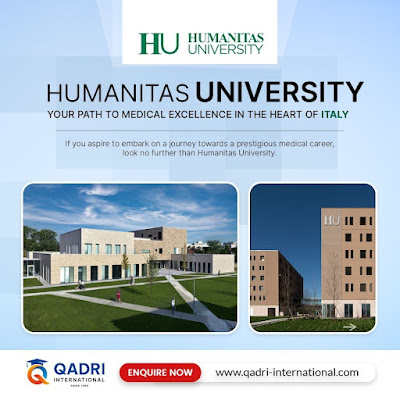Study Medicine Abroad: A Comprehensive Guide to Pursuing Your Medical Degree in Europe
Introduction
Study medicine abroad is an exciting and rewarding journey that opens up a world of opportunities. For many aspiring doctors, Europe is a top destination due to its prestigious universities, rich history, and vibrant cultures. But what makes studying medicine in Europe so appealing? Let’s dive into the many benefits and essential information you need to know about this incredible experience.
Benefits of Studying Medicine in Europe
High-Quality Education
European medical schools are renowned for their high standards of education. Many universities have a long history of medical excellence and are equipped with state-of-the-art facilities. The rigorous academic programs ensure that students receive a comprehensive and practical education, preparing them well for their medical careers.
Diverse Cultural Experience
Study medicine in Europe offers more than just academic learning. The continent is a melting pot of cultures, languages, and traditions. This diversity enriches the student experience, providing a broader perspective on life and medicine. Plus, the opportunity to travel and explore different countries and cultures is an added bonus.
Affordable Tuition Fees
Compared to countries like the United States and the United Kingdom, many European countries offer more affordable tuition fees. Additionally, the cost of living in some European countries is relatively lower, making it financially viable for many international students.
English-Taught Programs
Many European universities offer medical programs taught entirely in English. This is particularly advantageous for international students who may not be proficient in the local language. These programs maintain the same high standards as those taught in the native language, ensuring a quality education.
Top European Countries for Studying Medicine
Germany
Germany is home to some of the world's leading medical schools. With a strong emphasis on research and practical training, German universities provide an excellent environment for medical studies. Plus, many programs are offered in English.
Italy
Italy boasts a rich history in medical education and offers numerous medical programs in English. Cities like Rome, Milan, and Florence are popular among international students for their blend of modern and historical academic environments.
Poland
Poland is becoming increasingly popular among international students due to its affordable tuition fees and high-quality education. Universities like the Medical University of Warsaw are well-regarded for their medical programs.
Hungary
Hungary offers several English-taught medical programs that attract students from all over the world. Universities like Semmelweis University in Budapest provide a comprehensive education with a focus on research and clinical practice.
Bulgaria
Bulgaria is known for its affordable education and living costs. Universities like Sofia Medical University offer excellent medical programs in English, making it a great choice for international students.
Life as a Medical Student in Europe
The academic structure in European medical schools often includes a mix of lectures, practicals, and clinical rotations. Expect a rigorous schedule that requires dedication and hard work. Balancing academic life with social activities is important. Many universities have student organizations, sports clubs, and cultural events that provide a well-rounded experience. Accommodation options vary from university dormitories to private rentals. It’s advisable to secure housing early, as popular areas can fill up quickly.
Post-Graduation Opportunities
Residency Programs
Many European countries offer residency programs for international graduates. Research the specific requirements and application processes in your chosen country.
Work Opportunities in Europe
Graduating from a European medical school can open doors to various work opportunities across the continent. Each country has its own licensing requirements, so ensure you understand the process.
Returning to Your Home Country
If you plan to return to your home country, check the recognition of your European medical degree and any additional steps required to practice medicine there.
Conclusion
Study medicine in Europe is a rewarding journey filled with opportunities for academic and personal growth. From high-quality education to cultural enrichment, the benefits are immense. With careful planning and determination, you can make the most of this incredible experience.
Contact Us :-
Visit Website — https://qadri-international.com/
Address: 1704, Opal Tower, Abraj Street, Burj Khalifa Blvd, Business Bay, PO Box: 31657, Dubai, U.A.E
Landline no.: +97143351390
Mobile no. +971507682055
Mail : info@qadri-international.com
FAQs
What is the duration of medical studies in Europe?
The duration typically ranges from 5 to 6 years, depending on the country and university.
Are European medical degrees recognized globally?
Yes, many European medical degrees are recognized worldwide, but it’s essential to verify the specific recognition in your home country.
Can international students work while studying in Europe?
Yes, many countries allow international students to work part-time during their studies. Check the specific regulations in your host country.
What are the language requirements for study medicine in Europe?
Language requirements vary. For English-taught programs, proficiency in English is required. For programs in other languages, proficiency in that language is necessary.
How can I find accommodation as a medical student in Europe?
Universities often provide housing assistance. You can also explore private rentals or shared apartments. Start your search early to secure a good place.


.jpeg)

Comments
Post a Comment